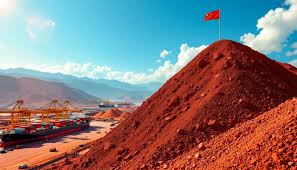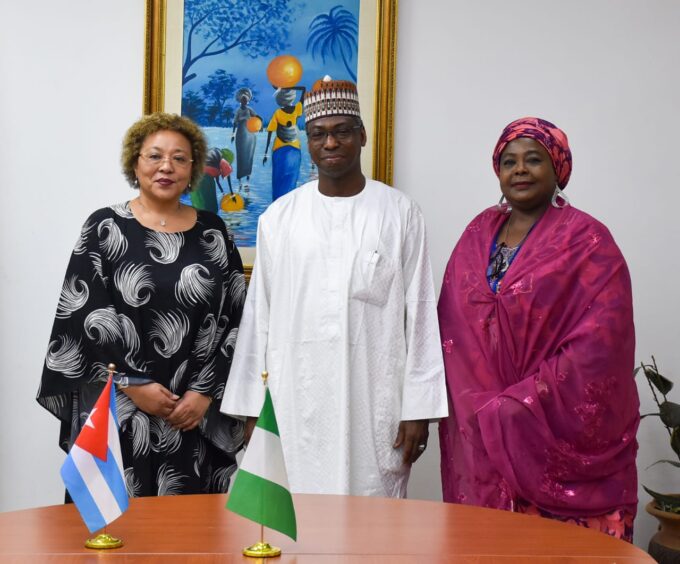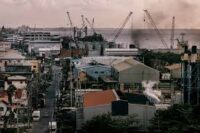In recent months, Somaliland, a small but strategically significant region along the East African coast, has become the focus of heated international debate. The self-declared republic, which proclaimed independence from Somalia in 1991 following the country’s descent into civil war, has remained unrecognized by any government for more than three decades. But a fresh push by high-profile Republicans in the United States has put the issue of Somaliland’s recognition back on the global stage, intertwining it with reports of controversial Israeli plans to forcibly relocate Palestinians from Gaza.
The debate began intensifying in June when US Representatives Scott Perry of Pennsylvania, Pat Harrigan of North Carolina, and other Republican figures introduced a bill that declared Somalia’s claims over Somaliland “invalid and without merit.” The bill urged Washington to officially recognize Somaliland as an independent country, an act that would mark a historic foreign policy shift in the Horn of Africa. Soon after, Senator Ted Cruz of Texas—who has received significant funding from pro-Israel lobby groups such as AIPAC—sent a letter to former US President Donald Trump advocating for Somaliland’s recognition. In his letter, Cruz highlighted Somaliland’s efforts to build ties with Israel and its support for the Abraham Accords, the US-brokered agreements that normalized relations between Israel and several Arab nations.
The geopolitical controversy deepened when Israeli media outlets reported that the Netanyahu government was exploring Somaliland as a potential site to resettle Palestinians expelled from Gaza. Human rights advocates from Somaliland immediately voiced alarm, warning that such a move would not only be morally indefensible but could also undermine the region’s longstanding sympathy for the Palestinian cause. They cautioned that accepting forcibly displaced Palestinians might make Somaliland “complicit in the genocide against Palestinians in Gaza” and could result in sympathetic nations withdrawing their quiet support for Somaliland’s recognition.
The possibility of this relocation plan has struck a raw nerve in Somaliland, where many residents are deeply supportive of Palestine. Local voices, such as that of high school teacher Ahmed Dahir Saban from Awdal province, stressed that while Palestinians would always be welcomed if they arrived voluntarily, any forced relocation would be seen as ethnic cleansing. Ahmed warned that such a move could embolden extremist groups like al-Shabab and ISIL (ISIS) to exploit public anger and carry out attacks throughout Somaliland, further destabilizing the region. Analysts agree, noting that armed groups have long used narratives of foreign interference and “Crusader-Zionist” conspiracies to justify violence. A relocation deal linked to Israel and the US would hand them a powerful propaganda tool, fueling recruitment and militancy across the Horn of Africa.
Complicating matters further, Somaliland itself faces accusations of rights violations. While the region has often been praised for its relative stability compared to Somalia, it has also been criticized for silencing dissent, cracking down on the media, and marginalizing unionist voices. The violence in Las Anod in 2022 and 2023, where Somaliland forces were accused by Amnesty International of indiscriminate shelling that killed hundreds and displaced nearly 200,000, damaged its reputation and raised questions about its governance. Rights groups accused Somaliland of committing war crimes, marking the first time an actor other than al-Shabab had faced such allegations within Somalia’s borders.
Despite these challenges, Somaliland’s leadership has welcomed the renewed US discussion about recognition. Officials in Hargeisa, the capital, praised Senator Cruz for his advocacy, with presidential spokespeople reiterating that recognition was “not a question of if, but when.” Yet on the sensitive issue of the Palestinians, the government has remained silent, refusing to comment on whether talks with Israel are underway. This silence has only deepened public suspicion, with older citizens like Mohamed Awil Meygag warning that the pursuit of recognition at the cost of complicity in the forced displacement of Palestinians could jeopardize Somaliland’s moral standing and even its future stability.
At the global level, the stakes are high. The Somali government in Mogadishu has rejected any attempt to recognize Somaliland, warning that such a move would violate its sovereignty and embolden armed groups, destabilizing the entire Horn of Africa. Regional analysts echo these concerns, suggesting that US recognition of Somaliland could ignite new conflicts not just in Somalia but across neighboring countries. At the same time, Washington’s growing interest in Somaliland is seen as part of a larger geopolitical chessboard involving Israel, Red Sea security, and countering China’s growing influence in Africa.
As the debate continues, Somaliland remains caught between its decades-long quest for recognition and the potential fallout of being tied to Israel’s highly controversial plans to expel Palestinians. For many within the territory, recognition by the US would be a dream fulfilled, but not if it comes at the cost of their solidarity with Palestine or the risk of violence from extremist groups. The unfolding situation places Somaliland at the crossroads of international diplomacy, human rights, and regional security, leaving the world to wonder whether its long-awaited recognition will come with a price too high to pay.














Leave a comment